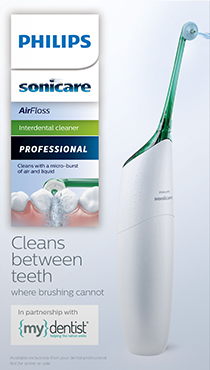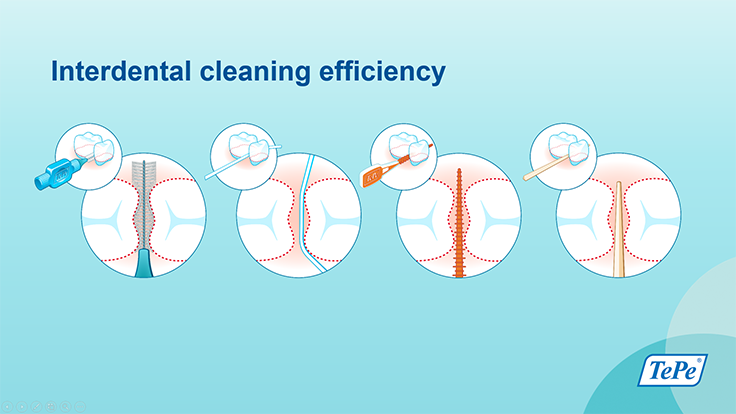by
Shahed Ali
| Feb 10, 2020
Gum Awareness Month is here to help you understand everything you need to know about gum disease, and how taking care of your gums can benefit your overall health.
Throughout February we’ll be sharing top tips from our clinicians and giving you the chance to win a Philips Sonicare Airflosser to keep your mouth in top condition.

But first, what is gum disease?
Gum disease is a very common condition where your gums become swollen, sore or infected. It is usually caused by poor brushing and flossing which means that plaque, a sticky film containing bacteria, remains on the teeth and irritates the gums.
The early stage of the condition is called gingivitis, which if not treated can develop into a more serious form of gum disease known as periodontitis.
Gingivitis
This is the earliest stage with symptoms such as bad breath, swollen or painful gums and bleeding gums when you brush your teeth.
Many adults in the UK have gingivitis and the good news is that if you take action early it is usually treatable with the advice and assistance of your dentist or hygienist and following good oral hygiene at home.
If you have the signs of gingivitis your dentist may recommend a hygiene appointment. As well as having your teeth professionally cleaned to remove hardened plaque (known as tartar), plus you’ll receive advice just for you on the products you should use to clean your teeth effectively (twice a day!) including the best toothbrush, toothpaste, floss or interdental brushes and mouthwash.
If left untreated Gingivitis can develop into a more serious form of gum disease, Periodontitis.
Periodontitis
Periodontitis is the most serious form of gum disease and cannot be cured, only managed and improved. It happens when the irritation caused by plaque build-up on the teeth spreads below the gum line and into the tissues that hold your teeth in place.
Eventually it causes irreparable damage to the bone in your jaw, and small spaces appear between the gums and teeth. This can eventually lead to tooth loss as the gums can no longer support the teeth.
Periodontitis will require extra dental and medical treatment with some cases resulting in surgery.
Who gets gum disease?
Anyone can get gum disease if they don’t follow good oral hygiene and see their dentist regularly.
However, some people are more susceptible than others:
- Smokers – smoking causes reduced oxygen in the bloodstream which directly impacts your gums. You’re also more likely to have build-ups of bacterial plaque that can cause infection and speed up the process of developing gum disease.
- Diabetics - Individuals with Type 2 diabetes are around three times more likely to develop dental problems than people who don’t have diabetes. Too much sugar in your blood and saliva create the perfect breeding ground for the bacteria that causes gum disease, so your dentist may want to see you more regularly.
- Pregnancy - Hormonal changes during pregnancy can make your gums more vulnerable to plaque, leading to inflammation and bleeding. Untreated gum disease during pregnancy has been linked to problems such as premature birth, a low birth weight and pre-eclampsia.
- High Blood Pressure – A high blood pressure can cause your gums to become misshapen, leading to difficulty maintaining effective oral hygiene and a build-up of plaque and bacteria that will eventually lead to gum disease. Make sure to tell your dentist if you suffer from high blood pressure.
If you have any concerns about your gum health, it’s always best to book an appointment with your dentist or hygienist.
You can also book with a hygienist direct at {my}dentist, meaning you can get that fresh, clean smile without needing a referral from your dentist first!
